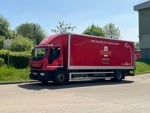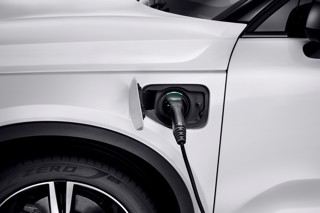The Association of Fleet Professionals (AFP) believes that the company car market could see growth, rather than decline as a result of coronavirus.
AFP chair Paul Hollick acknowledges changes in the way some people work, with an increase in video conference calls for sales teams, for example, could see some company vehicles disappear.
However, he said: “The bigger picture was much more complex - and overall fleet numbers could even be growing.
“It seems likely that we are going to see a degree of permanent structural change about how some functions go about their business. Sales and account management are probably the most obvious examples.
“The traditional, face-to-face manner of the monthly account management meeting is likely to be consigned to history in favour of Zoom or Teams.
“However, that only concerns a relatively small part of the company car parc. All the other reasons that cars are operated by employers– from job need to human resources considerations – remain in place.”
Hollick argues that the company car remains a highly effective tool for businesses and, in many instances, the only viable transport option.
“While mileage for some may be reduced in the future, the journeys that they make are still important,” he said.
Fleet News reported earlier this month that early terminations and contract extensions from fleets and company car drivers are being reported by leasing companies as job losses increase.
Over the past three months, the number of people claiming out-of-work benefits (job seekers allowance and low income benefits) has more than doubled, reaching 2.7 million in July, according to the Office for National Statistics (ONS).
The latest data also shows more than three million people were still furloughed as the Government scheme begins to wind down.
The ONS says that more than one-in-10 workers (12%) were, effectively, having their wages paid by the Government between late July and the middle of August, a 50% reduction on May’s figures.
The Bank of England has warned that UK unemployment is expected to peak at 2.5 million by 2021, with more than a million jobs expected to be lost in the second half of this year.
It highlighted what it called the “considerable uncertainty” remaining about the prospects for employment after the furlough scheme finishes next month (October).
Hollick said that, while there are reasons why some employers might be reducing their company car numbers, there are other pressures creating growth.
For example, the drive for electrification. Many employers are now committed, at a corporate level, to changing as much as possible of the transport on which they depend to EVs, he explains.
“They know that drivers who give up their company car for a cash option are overwhelmingly likely to choose an older, more polluting model. There are strong CSR reasons for retaining company cars.”
He believes that there are also credible grounds to expect growth in other forms of employer-based car provision that were effectively an extension of the formal fleet.
“There are a couple of big stories here,” he said. “The first is cash allowance drivers looking to opt back into company car schemes thanks to the 0% benefit-in-kind rate for EVs introduced at the start of the current tax year. This is proving a very attractive option.
“The same tax situation is also prompting a dramatic increase in salary sacrifice schemes. We believe these types of initiatives will gain much greater traction in the near future. Additionally, there are signs that affinity leasing schemes are gaining in popularity.”
Nevertheless, more than a third (36%) of fleet decision-makers believe company car drivers will want to take a cash allowance rather than a company car, according to the initial findings from the latest Fleet News Covid-19 survey, which looks at the long-term impact of the pandemic on the fleet sector. (Full results will be published in the September edition of Fleet News).
The shift to homeworking and meetings taking place online rather than face-to-face during the pandemic has led some fleet industry experts to suggest that company car drivers will favour cash overpaying benefit-in-kind tax (BIK) on a car which is now used less.
However, others argue that the company car is still an attractive option, particularly as more pure electric vehicles come to market and do not incur any BIK for the current tax year.
Hollick says that it’s important that the fleet sector, as a whole, resisted the emergence of any emerging narrative that the company car was in potential decline.
“I’ve worked in fleet for many years and one thing that I have found occasionally frustrating is that fleet managers could do more to promote their own, often significant contribution to the organisations for which they work,” he said.
“That does need to change and, in the wake of the coronavirus crisis, they should underline the benefits of company cars and vans, as well as the effectiveness of the profession of fleet management in general terms.
“The fact is that very few businesses could survive without access to road transport, whatever form it takes, and the current situation hasn’t changed that core fact.”
The AFP was formed in March 2020, from the merging of the Association of Car Fleet Operators (ACFO) and the Institute of Car Fleet Management (ICFM).
Hollick concluded: “The ongoing discussion around company cars and fleet management in the era of coronavirus is exactly the kind of subject that the AFP was formed to tackle.
“We are working hard with our members on new strategies to handle emerging situations, as well as widely sharing pertinent new information and developing best practice.
“We are also determined to speak with one voice as an industry in promoting the overwhelming advantages of professional fleet management at this point in time.”






















Login to comment
Comments
No comments have been made yet.